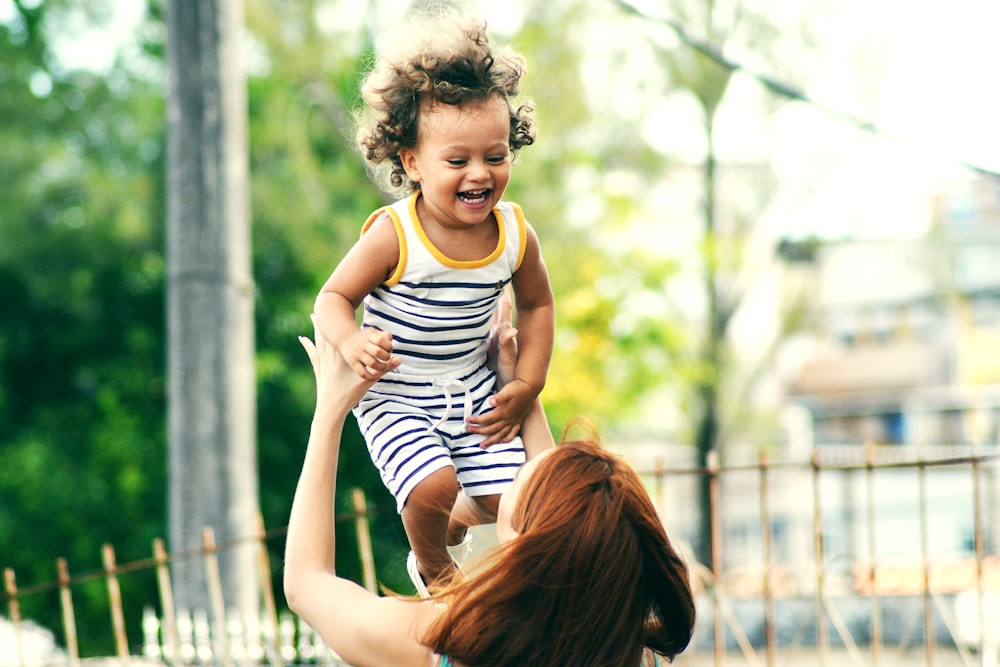Baby communication
Long before he can speak, your baby tries to communicate his needs, desires and emotions with signals.

Babies learn to communicate in different ways before they know how to talk. Thus, in a few months, your baby emits different types of crying, cooing and facial expressions to see your reaction and that of those around him. He soon learns to exploit the cries and movements that bring him the satisfaction he seeks.
Knowing that he can get what he wants help to gain greater esteem of him and feeds his desire to go further, to discover things. When your baby makes sounds, repeat them after him and add in some of your own.
Meeting the needs of your child does not spoil him. The need for human contacts is innate. By fulfilling your baby's needs, you get to know him better and give him the opportunity to get to know you better; and above all, you tell him he can count on you.
Learn ... to understand each other!

Your child focuses on you when you respond appropriately to his needs and you show him kindness. A baby needs to know that someone is there to take care of him. The habits and rituals that you instate allow him to establish a strong bond of attachment with you. This link is integral to the development of his brain, and he will serve as a model for his future intimate relationships and develop the baby communication skills.
Babies tie bonds by their senses. To tell them that we love them, we have to talk to them look them in the eye amply. You can’t be there and give your baby a hug whenever he wants, but we must never ignore his "request" for hugs. Do not worry, you will not spoil it by doing so: you only meet his needs.
Spend time together
Even when you feel that you are struggling in all directions, it is important to spend time with your baby.
The quality of time spent with your child depends on the amount of time you give it. Do you think you should be in close contact with your child and that the time together should be particularly happy? It's not always the case. For you to truly experience special moments and to make the most of it, you must spend a lot of time taming each other and strengthening the bonds that bind you. It is when your child is at the center of your interests that these moments of happiness become more frequent, including when you perform the most routine and routine tasks.
Organize with your life partner (if you have one) to take turns caring for you and your baby. The household is not a priority. Make yourself a network of friends, relatives and neighbors who will help you: everyone needs a hand.
Toys will never replace your attention to your little one.Toys and other baby items are an integral part of the stimulating environment and baby communication that you have to offer, but playing with your baby is just as essential to your well-being.
When they are not sleeping and they are calm, babies learn more easily, as long as their environment is peaceful. So this is the perfect time to spend time with them and play.
Source : naître et grandir
Commentaires
Enregistrer un commentaire